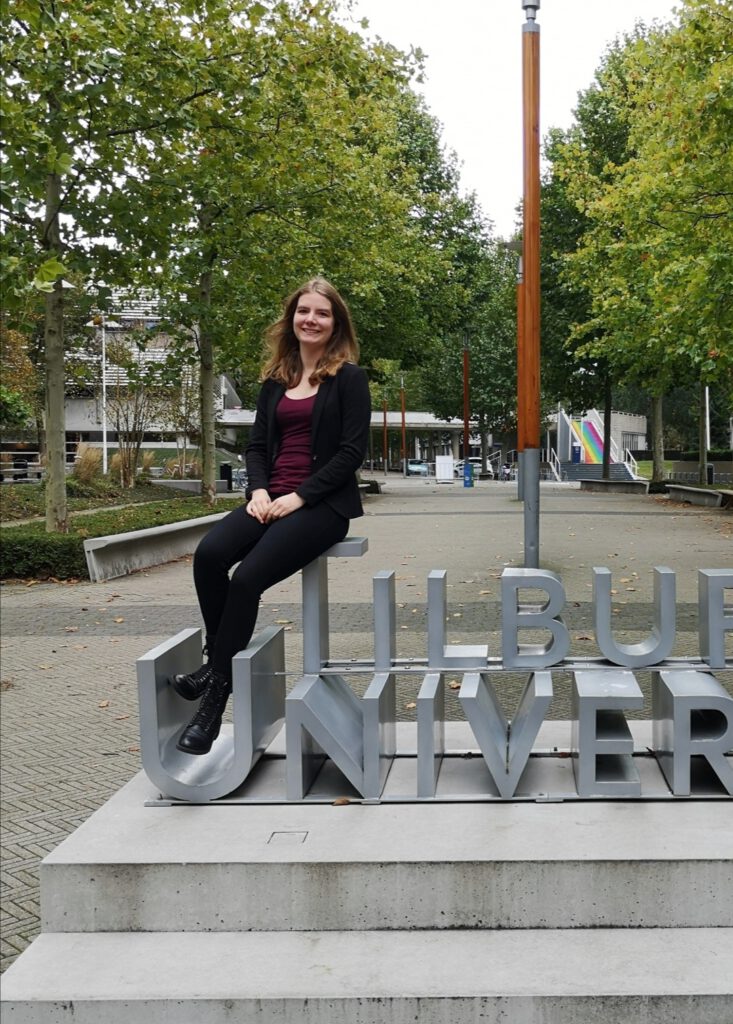
Why did you decide to do the IDA Master?
I chose the IDA master because I realised I would rather stay in academia instead of pursuing the goal of becoming a therapist. During my bachelor, my interest in research and contributing to scientific knowledge increased due to the growing realisation what enormous effects little insights and small behavioural changes can have on one’s life. I want to keep educating myself while trying to do the same for others and I would love to be a part of such an open, flexible, and international community, which is exactly how I would describe my undergraduate experience at TiU.
What has been your favourite course and why?
Biological & physiological correlates, because I am really interested in clinical and medical psychology, specifically stress research and the health consequences our daily behaviour and habits can have.
Do you experience stress in your studies/pressure? How do you deal with it?
Yes, the first IDA semester was hard. Fortunately, I have successfully integrated exercise and healthy eating in my daily routine and my new year’s resolution is to make sure I go outside at least every second day. I still struggle when it comes to enjoying ‘quiet’ time by myself, away from any screens.
How can your knowledge from the IDA master be useful for the real world?
I have learned a lot about healthier living (stress, sleep, eating, emotions) from previous TiU courses in terms of simple preventive measures that I can take on a daily basis and I understand my body and my mind way better now. Applying knowledge about biases, behavioural change, and individual differences (eg personality) on a societal scale helps me change my inner as well as outward responses to what is happening in the world. I think in order to be a thoughtful, social, and happy human being, there’s tons of information that is helpful to improve ourselves and our life satisfaction, as well as the world around us. IDA provides such knowledge, but it also gives me the tools to reevaluate myself, my environment, and the (scientific) sources I encounter.
Why do you think it is important to study what you study?
There are so many unanswered questions in the field of Psychology when it comes to the relationships between various aspects of us and our environment that we need to investigate. For individuals, good health and happiness are main contributors to how we live and age. On a larger scale, social cooperation and respect in addition to individual wellbeing are necessary for a functioning society. Of course, there are tons of other factors, but my main point is that Psychology studies all these variables, causes, and consequences that help us understand and improve ourselves. At the very least, it can help us prevent making very bad personal and societal decisions, and teach us how to deal with others that do not want to agree with us.
What is the most fascinating you have learned?
I don’t really know what to pick for this question. More generally, it’s fascinating to realise how much of the research I know of I could automatically apply to what was happening in 2020 – from sustainability to Covid to BLM to being vegan – and how one can use the dynamics of scientific research, individual differences, and social structures in order to facilitate positive and open conversations about important issues.
What motivates you to keep studying?
Right now, I am looking forward to the various internal traineeships in order to get to know more people at TiU. I do not feel like I need much motivation to keep studying because I feel very at home in Tilburg and I enjoy the structure of the courses and the program as a whole. I know I will have many rewarding experiences within this program as well as new insights that will help me in the future.
How are you experiencing the relationship to your teachers?
I enjoy the relationships between the IDA students and supervisors very much. The program offers a great structure to get to know the TiU staff and everyone has been so kind, open, and welcoming. It’s a great learning environment to share experiences and feedback, and a very gratifying atmosphere.






Be First to Comment